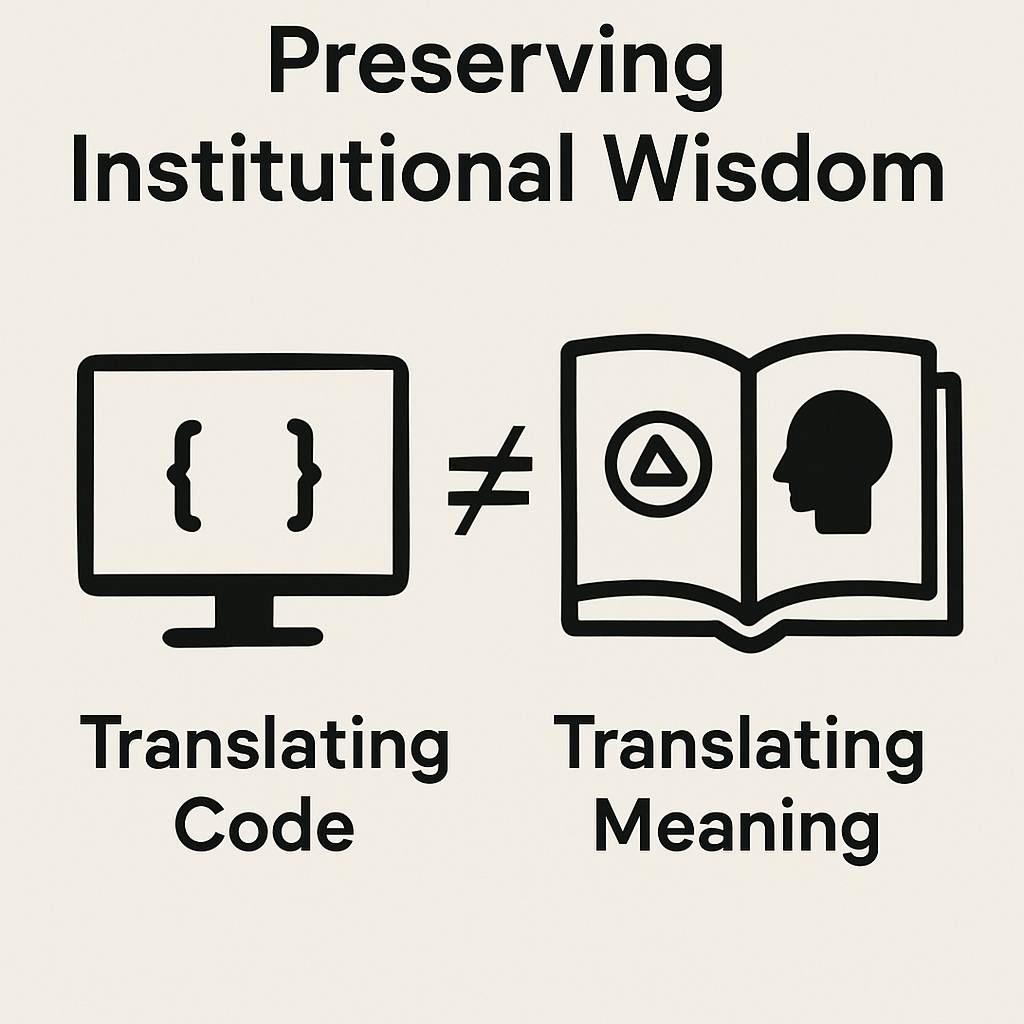Semiotics—The Fourth Dimension of Mainframe Modernization
June 23rd, 2025Why mainframe modernization is so hard (and so worth it) — Graham Cunningham, CTO
Next Article in this Series
There’s something strange about mainframe modernization projects. On paper, they should work. You have the technical skills. You understand the business processes. Your team is aligned and committed. Yet a lot of these projects fail to deliver the expected value, if they work at all.
I’ve been in the middle of complex modernization projects for over twenty years, and I’m publishing this series of articles to share some insights that I’ve distilled along the way.
Over a series of articles, I will show how our customers reduce costs, reduce risk, increase speed, solve the skills shortage, and end up with their applications running on a modern stack—the holy grail of mainframe modernization. But let’s start with the key insight.
Everyone talks about the three dimensions of modernization challenge: technical (migrating code and data), operational (preserving processes), and cultural (managing people). But there’s a fourth dimension that almost no one sees until it’s too late.

The fourth dimension is semiotic.
Semiotics is the study of meaning—how signs and symbols carry information beyond their literal content. It turns out that forty-year-old mainframe systems are packed with meaning that isn’t in the code.
Think about it this way. Your grandmother’s recipe for apple pie says, “bake at 350 degrees.” But it doesn’t tell you that she always knew her oven ran hot, or that through decades of real-world experience, she could tell by smell & touch when it was done, or what to do when the humidity made the dough sticky. That knowledge lived in her head, not on the recipe card.
Mainframe systems have the same characteristics. They contain decades of accumulated wisdom about edge cases, regulatory requirements, and operational realities that someone learned the hard way. This wisdom isn’t documented—it’s embedded in the code patterns, error handling approaches, and design decisions.
When you migrate a system, you can copy the logic. But can you copy the wisdom?
Modernization today treats code like a foreign language that needs word-for-word translation. COBOL becomes Java. CICS becomes microservices. DB2 becomes PostgreSQL. But this is like translating poetry with Google Translate. You get the words, but you lose the soul.
The companies that succeed at mainframe modernization—really succeed, not just technically but operationally—figure out how to preserve the institutional theories embedded in their legacy systems. They understand that these systems aren’t just functional specifications. They’re repositories of competitive intelligence.

A forty-year-old banking system doesn’t just process transactions. It embodies learned responses to every weird edge case that can happen in banking: leap years that fall on bank holidays, customers who try to withdraw money at exactly midnight on New Year’s Eve in 1999, and so on.
The solution isn’t simply better documentation or more comprehensive testing, because you will never think of all the edge cases. It’s understanding that migration is really about translating meaning, not just code. It’s about preserving the institutional theories that made your systems reliable, not just making them run on modern infrastructure.
Once you see the fourth dimension, everything else makes sense. The projects that succeed aren’t just about moving code—they’re about preserving an essential competitive advantage. Many of the ones that fail are undermined by the accidental loss of decades of accumulated wisdom.
The question isn’t whether to modernize your mainframe systems; the question is how to do it effectively and in a way that preserves their intelligence.
